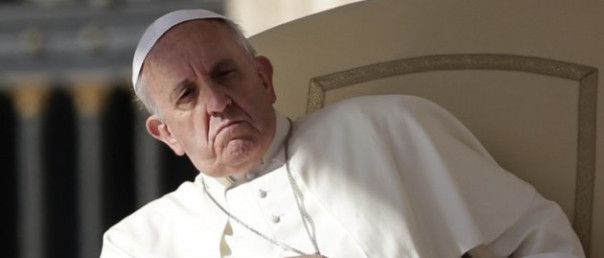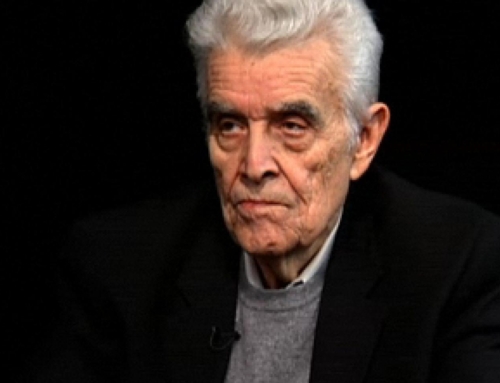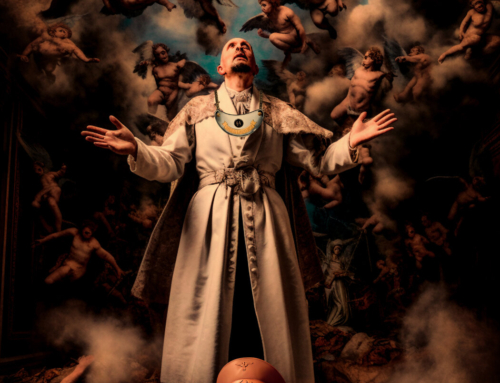There is a rumor circulating that English Archbishop Arthur Roche (who Pope Francis has appointed to succeed Cardinal Sarah as head of the Liturgy and Worship office) will have the task of suppressing the extraordinary form of the Mass.
In 2007 Pope Benedict XVI issued Summorum Pontificum— a decree which allowed almost complete freedom for priests to celebrate the pre-Vatican II Latin Mass if they wished. Since then the full traditional Latin Mass has enjoyed somewhat of a comeback. Conservative priests–many of them young men who never knew the pre-Vatican II church–have gravitated toward the traditional Mass. They have been joined by significant numbers of young Catholics and most importantly, young families. Typically now, when one attends a celebration of the traditional Latin Mass the church will be packed with young families with lots of children (faithfulness to the old liturgy obviously comes with faithfulness to the church’s teaching on artificial contraception.)
Not only is the Latin Mass a special form of liturgy, but accompanying this is a kind of resistance movement to the liberal agenda that seems to be the current mood in Rome and amongst the hierarchy. This is a uniquely Catholic form of “rebellion” from a group of people who clearly prize obedience as a vital part of their faith. This is the sort of obedience that stuns the establishment. It is as if the Latin Mass crowd are saying, “We’ll show you obedience. We’ll be so obedient it will shock you. We’ll be so Catholic like you’ve never seen before!”
This attitude has been mocked and derided by liberal Catholics for some time as being too “rigid”. I’ve observed before that only creatures with backbone are able to be rigid. Jello isn’t rigid. That’s why it conforms to whatever mold it is poured into.
If Archbishop Roche does follow through (as the rumors suggest) with suppression of the Latin Mass he and the Vatican authorities had better be prepared for serious blowback. I can envision a large group of already very disenchanted Catholics either forming a new schism or making large defections to the Lefebvrists.
While I have had criticism of the extremists among them, I have always been sympathetic toward traditionalist Catholics. I do not celebrate the extraordinary form in my own parish because there is no need. (Across town at Prince of Peace parish, Fr Christopher Smith is devoted to the Latin Mass and provides it for the significant Latin Mass community) However, should the Latin Mass be suppressed there will be a pressing need for the Novus Ordo to be celebrated with due solemnity–properly informed by the extraordinary form. This was Benedict XVI’s intent in Summorum Pontificum: that the two forms would be “mutually enriching.”
I realize die hard Latin Mass aficionados balk at anything less than the full splendor of the traditional Latin Mass, but the Novus Ordo can be celebrated in a dignified, solemn and beautifully traditional manner. The beauty of the Novus Ordo is its flexibility and adaptability. I understand that rigorists view that as one of its great failings, but it does mean that all the informal abuses are not mandatory. Because it is flexible it can be celebrated in a truly traditional manner.
This spirit of traditional Novus Ordo worship is what I have tried to communicate in my book Letters on Liturgy. Maybe my thoughts on the matter will be of some help for priests and people who will be looking for a new way forward.







We should all thank God daily for the opportunity to participate in the holy sacrifice of the Mass, whatever form we prefer. I once read something that struck me as profound: “None of us are worthy to participate in even a poorly celebrated Mass.” It is a privilege that we have been given by the Lord. Of course, reverence and dignity should be integral in the celebration, but the variety of the ways these can be expressed are manifold, based on differences in cultural expression.
That is profound!
People forget the new order mass can be said in latin. Such a mass would have a similar sound with familiar latin prayers such as the Pater Noster. We still need a good english/latin lay NO missal.